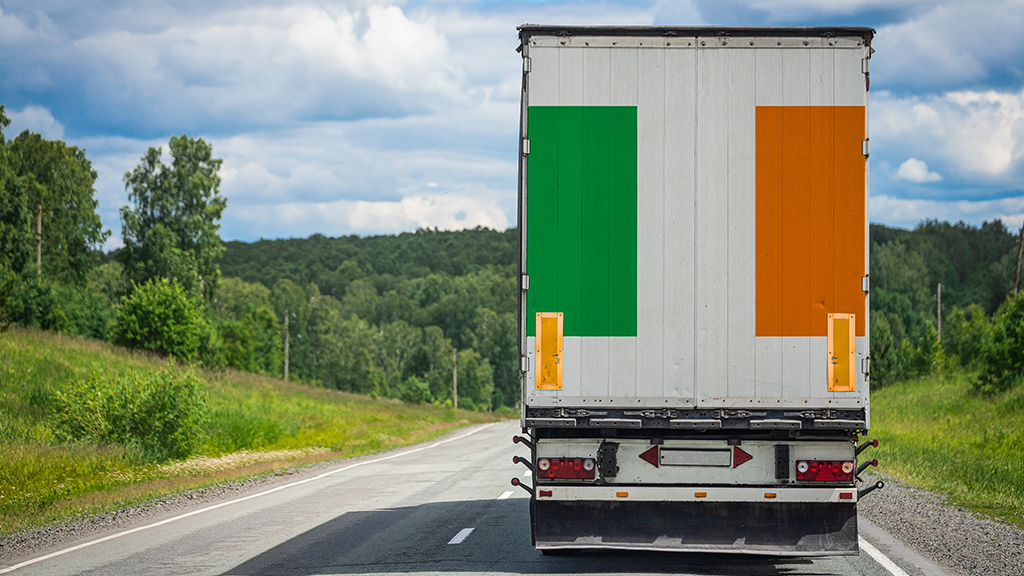
If you are involved in exporting goods from Ireland to the UK, it is essential to stay informed about the changes that will take effect from January 31, 2024. With Brexit in place, certain procedures will be implemented that will impact the movement of goods originating from Ireland. In this blog post we will provide guidance on these changes, focusing specifically on how they will affect Sanitary and Phytosanitary Goods (SPS). We will also discuss modifications scheduled for April 30, 2024 and October 31, 2024.
Changes for All Goods
As a result of Brexit, there is a new major adjustment to be aware of — import declarations for the UK are now mandatory. Initially, there was an exception for goods moving from Ireland. Now, hauliers using the Goods Vehicle Movement System (GVMS) must ensure they have a Goods Movement Reference (GMR) in place for movements from Ireland into Great Britain (GB).
Sanitary and Phytosanitary Goods (SPS) will need to be pre-notified on the UK’s SPS Import of Products, Animals, Food and Feed System (IPAFFS).
Actions you must take will depend on whether your SPS products are classified as low, medium, or high risk.
Sanitary and Phytosanitary Goods (SPS)
1. Low-Risk Products (securely packaged, have a shelf life stable at ambient temperature, have undergone some type of processing, i.e. canning):
Product Examples: Honey, canned pet food, pasteurised dairy products
- Create an import on IPAFFS in advance (ideally 24 hours – ports vary).
- Include the commercial documents from the supplier with the goods.
- Pre-lodge customs declaration with CDS (Customs Declaration Service).
- Ensure all data in your customs declaration agrees with IPAFFS.
- No health certificate is required.
2. Medium-Risk Products:
Examples: Chilled milk products, infant formula, hay/straw, eggs for human consumption
- Create an import on IPAFFS in advance (ideally 24 hours – ports vary).
- Provide an export health certificate (EHC).
- Include commercial documents from the supplier with the goods.
- Pre-lodge customs declaration with CDS (Customs Declaration Service).
- Ensure all data in customs declaration agrees with IPAFFS.
3. High-Risk Products:
Examples: Live animals, bees, germinal products
- Create an import on IPAFFS in advance (ideally 24 hours – ports vary).
- Provide a Common Health Entry Document (CHED) on IPAFFS in advance (as previously required).
- Include commercial documents from the supplier with the goods.
- Pre-lodge customs declaration with CDS (Customs Declaration Service).
- Ensure all data in customs declaration agrees with IPAFFS.
Upcoming Changes in 2024:
1.. April 30, 2024:
- Documentary and physical checks introduced for medium-risk animal products, plant and plant products from the EU (excluding Ireland).
- High-risk plants/plant products inspections move from destination to UK Border Control Posts.
2. October 31, 2024:
- Safety and security declarations for EU imports commence.
- Checks on medium-risk animal products, plants, plant products, and high-risk food and feed from Ireland at ports on the west coast of Great Britain.
- The risk-based categorisation will be applied to a broader range of agri-food goods.
What Should You Do Now?
By proactively addressing these changes, you can navigate the evolving landscape of exporting goods from Ireland to the UK effectively. Stay informed, plan ahead, and collaborate with key stakeholders to ensure a smooth transition. If you have any questions, please contact us today.
1 Speak to your customs agent or supply chain experts to ensure you are ready.
2 Appropriately categorise food or plant-based goods as low, medium, or high risk.
3 Register on TRACES/IPAFFS, as necessary.
4 Ensure that all parties in the supply chain are aware of their responsibilities.
5 Be prepared for teething issues and mitigate risk where possible with early movement of and extended deadlines.
6 Ensure you are set up to act as a UK importer if supplying goods under a Delivered Duty Paid (DDP) agreement. This may involve registering for UK VAT.
7 Ensure your haulier is fully registered for the Goods Vehicle Movement System (GVMS).
